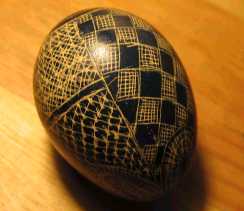 Easter is almost here and that means celebrations, including chocolate, Easter baskets, and plastic Easter eggs. Or does it? Plastic eggs aren’t very green, but they have become a staple of Easter egg hunts. They are cheap and convenient, but we may forget about what they could be doing to the environment.
Easter is almost here and that means celebrations, including chocolate, Easter baskets, and plastic Easter eggs. Or does it? Plastic eggs aren’t very green, but they have become a staple of Easter egg hunts. They are cheap and convenient, but we may forget about what they could be doing to the environment.
Here are some plastic Easter eggs alternatives that you might want to consider this year:
Hard Boiled Eggs
It’s like Easter the old fashioned way – pre-plastic eggs! Hard boiled eggs may be a bit more messy and if one is lost in the hunt, it can be smelly but, most kids love coloring and decorating them. They may be a bit disappointed that the hard boiled eggs have, well egg inside them rather than candy, but save the candy for the baskets (without that terrible plastic grass of course).
You can eat the hard boiled eggs, but remember that they shouldn’t sit out any longer than two hours. If you hide them outside in the heat, play it safe and throw them away when done. You don’t anyone getting salmonella for Easter.
Wooden Eggs
Like hard boiled eggs, wooden eggs are fun to decorate. Unlike hard boiled eggs, wooden eggs can be saved and reused again year after year.
Secret Pocket Eggs
These are little cloth egg sewn together that have a secret pocket. You can hide little treasures and candy in the pocket, so it is as good as a plastic Easter egg. Plus, since these secret pocket eggs aren’t breakable, the kids will love tossing them around (and probably at each other). The directions for making these are located at Sew, Mama, Sew!
If you do purchase plastic Easter eggs, rather than throw them away, save them again for next year or donate them to a local thrift store. You can also check with your local preschool, daycare center, or church to see if they need plastic eggs for an egg hunt next year.
(Permission is granted to copy, distribute and/or modify this image under the terms of the GNU Free Documentation License, Version 1.2 or any later version published by the Free Software Foundation.)

